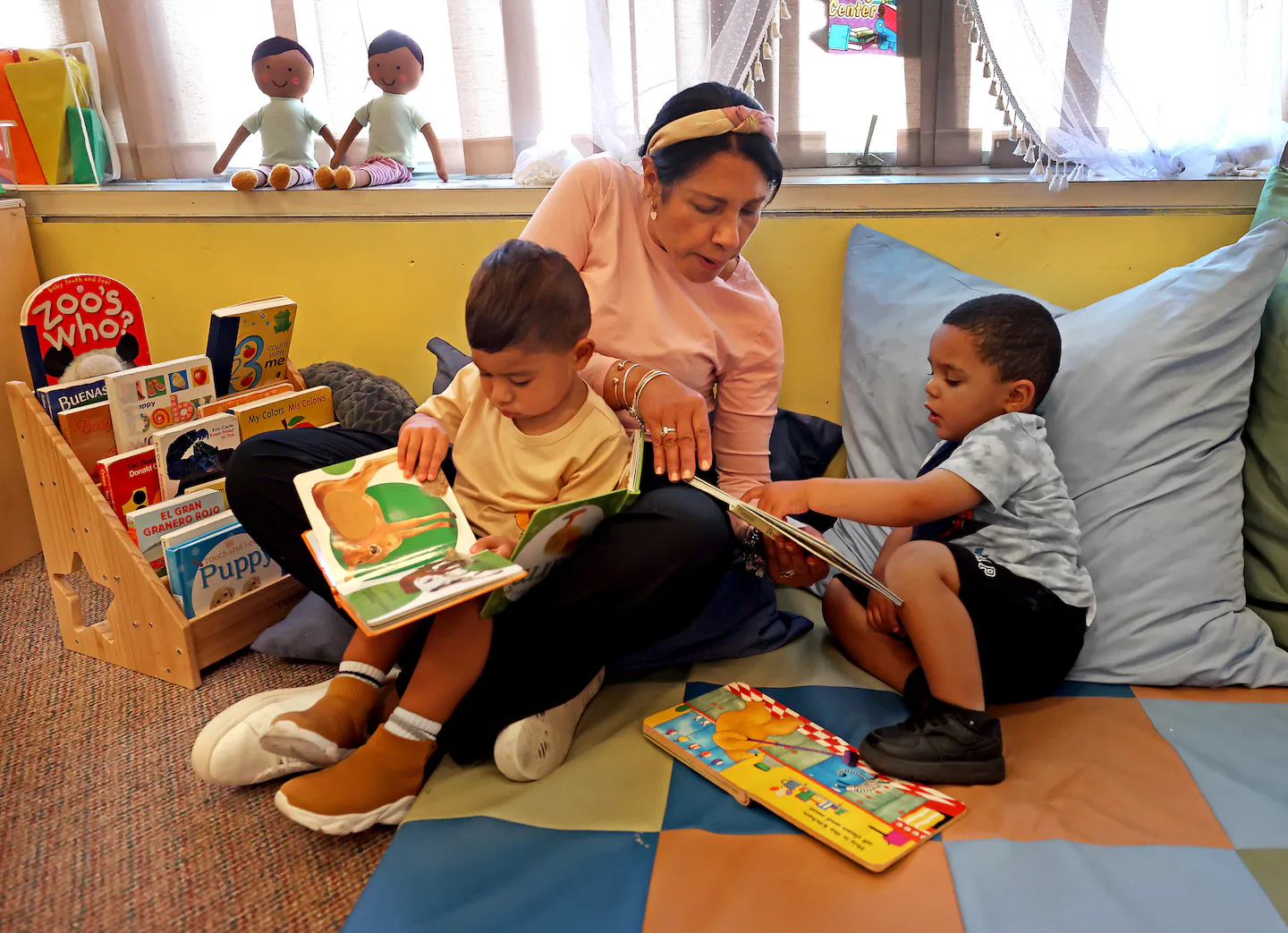
Child care is essential to Rhode Island’s babies and young children, and to our working families.
High quality, affordable child care provides kids with a safe environment for learning, socialization, and exploration. And for working families, child care is a necessity so parents can know their children are well cared for while they work.
It is understandable that many families, legislators, and policymakers are rightly concerned about a recent report by the Rhode Island Auditor General that found 60 percent of 50 child care programs audited were found to have significant noncompliance with health and safety regulations. Examples of noncompliance included incomplete or missing staff background checks, and safety concerns including outdoor play area hazards, unsecured toxic substances, and hazardous objects.
Advertisement
Working with the state’s Department of Human Services, Rhode Island’s child care providers are working diligently to address these noncompliance issues to ensure that children are provided with a safe, secure, and welcoming environment that fosters their earliest years of learning. It is also important to recognize the Auditor General’s findings within the larger context of a child care sector in Rhode Island that remains in crisis due to a lack of investment.
In 2023, the Bipartisan Policy Center reported that child care programs are operating within a “broken system” where most families are not able to afford to cover the cost a provider would need to charge to provide safe, healthy, quality child care. At the same time, child care providers operate on razor thin margins, which makes it very challenging to invest in and upgrade their facilities. Compounding the crisis is a workforce, mostly women of color, that is underpaid (earning on average just $16.74 per hour in Rhode Island) for the critical care and education they provide to our state’s babies and young children. This is a reality that leads to high turnover, which in turn leads to closed classrooms and even longer waiting lists for families that need child care.
Advertisement
Although Rhode Island has made some recent progress in expanding access to quality child care, all the funding to support these efforts has come from federal sources. During the Great Recession of 2007-09, Rhode Island made draconian cuts, eliminating $46 million in state general revenue from our child care system. Rhode Island does not meet federal benchmarks for child care rates, and helps half as many families as we did in the early 2000s.
Given this challenging context, we recommend a number of investments and policy changes that will start to address the concerns raised in the recent Auditor General’s report. These include:
Restore at least $46 million in state funding for child care cut during the Great Recession to support the availability of quality child care, and help more families pay for it.
Sustain and expand initiatives that help child care programs attract and retain skilled staff. Reducing turnover will help child care providers better comply with numerous health and safety requirements.
Add additional licensing inspectors to meet national standards, as suggested in the Auditor General’s report, so all programs receive at least two unannounced comprehensive inspections per year, with four visits per year for programs that are struggling to meet health and safety standards.
Continue to ensure all inspection reports are posted within 30 days on the RI Start Early System (RISES) family portal, including information about observed health and safety noncompliance that was corrected onsite.
Other New England states are making major investments in their child care systems to support families and child care providers. In2025, Connecticut invested $300 million in state funds to create an Early Childhood Endowment to make child care more affordable and accessible for families, and to boost the wages for child care educators. Massachusetts allocates $475 million per year in state funds to the Commonwealth Cares for Children program to provide monthly operational stipends to keep programs open and help providers pay competitive wages. And both Vermont ($125 million) and Maine ($60 million) allocate significant state funds each year to help more than half of the families in the state pay for quality child care. Rhode Island allocates only $10 million in state funding to child care.
The Rhode Island Auditor General’s report raises critical issues that the Department of Human Services and our state’s child care providers take seriously and are working to address as quickly as possible. Additional investments are sorely needed, because just like roads and bridges, quality, affordable child care enables families to get to work.
Advertisement
Let’s invest in Rhode Island’s child care infrastructure to improve compliance with health and safety regulations, and to ensure that families who need it can access affordable, high quality child care.
Leanne Barrett is director of early childhood policy and strategy at Rhode Island KIDS COUNT, and Lisa Hildebrand is executive director of the Rhode Island Association for the Education of Young Children. Both organizations are members of the RIght from the Start coalition, which advocates for investments in Rhode Island’s child care system.